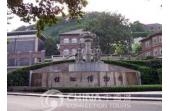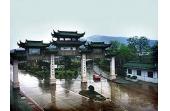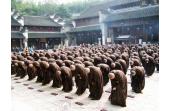Zhenjiang is a prefecture-level city of Jiangsu province, People's
Republic of China. The city was once the provincial capital of
Jiangsu province during the rule of the Republic of China. With a
rich heritage of culture and art, the city is often associated with
many of the fascinating folk mythologies in Chinese history. In
1986, the city became one of the well-known historic and cultural
cities in China.
The city is situated on the crossway of the third longest river in
the world---the Yangtze River---and the longest man-made canal in
the world---the Grand Canal. Zhenjiang borders Nanjing on the west,
about 70 km (1 hour by car). The prefecture-level city of Zhenjiang
administers six county-level divisions, including three districts
(Dantu District, Jingkou District and Runzhou District) and three
county-level cities (Danyang City, Jurong City and Yangzhong City).
Zhenjiang has a total population of three million and has a land
area of 3,847 square km.
The most famous tourist sites in Zhenjiang are "the three hills",
namely Gold Hill, Jiao Mountain and Beigu Hill, all standing by the
Yangtze River. With heights of less than one hundred meters, all of
the three hills overlook the Yangtze River with precipitous and
steep cliffs. Developed since early times, an abundance of antiques
and temples remain on the hills, and legends and myths circulate
about them. Among the hills, Gold Hill is in the west part of the
old downtown, with a height of 44 meters. Tianchan Temple conforms
harmoniously to the hill forming a unique scene, described by the
classic saying "the temple wraps the gold hill". Beigu Hill
standing in the river is famous for the century-old Dinghui
Buddhist Temple. "Zhenjiang Three Hills" are known as key national
scenic spots. Along with Three Hills, another famous scenic spot,
Maoshan Mountain, has been listed as a National AAAA Tourist Spot.
Zhenjiang postal code: 212000
Telephone area code: 0511












